How Nutrition Gardens Are Transforming Lives in Zimbabwe Communities
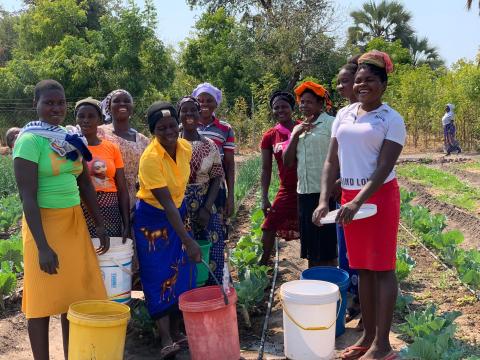
By Leana Padera (Communications Intern)
In response to the devastating effects of the El Niño-induced drought sweeping across Zimbabwe and Southern Africa, World Vision Zimbabwe, with the support of the World Food Programme (WFP) and USAID, is spearheading a transformative initiative in Kariba District. Through the Food Assistance for Assets (FFA) Program, nutrition gardens have been established to combat food insecurity, empowering communities with the tools, knowledge, and resilience needed to grow their own nutritious food, even in the face of a changing climate.
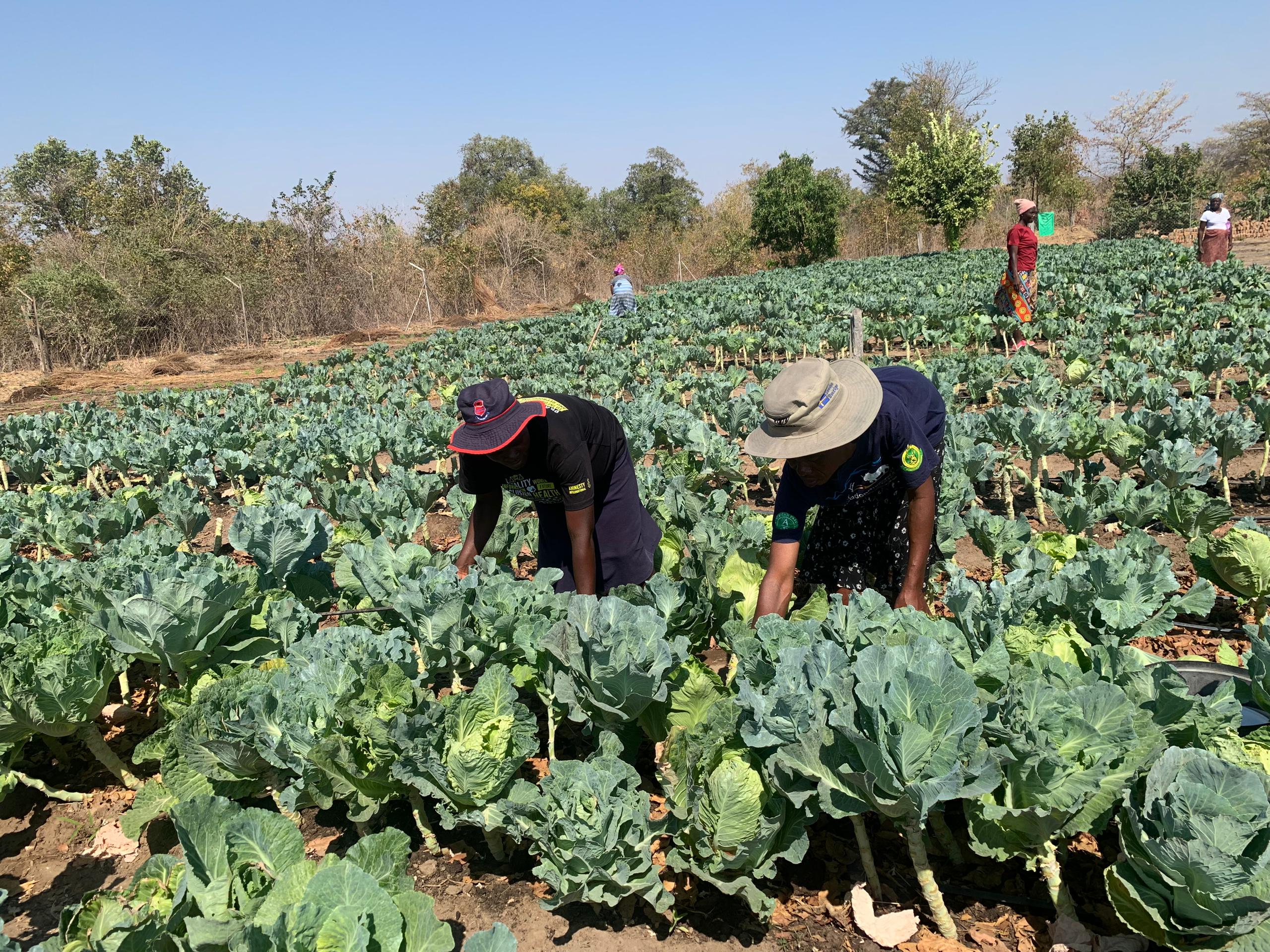
One of the flagship sites of this initiative is Nabbole Garden, located in Mola, Kariba District. This garden, comprising 84 members—72 of whom are women—represents a beacon of hope for vulnerable communities. The program intentionally prioritizes women’s empowerment by focusing on those most in need, such as widows and the elderly, while considering commitment to sustainable farming practices. Through this approach, the program aims to strengthen community resilience, offering more than just a temporary solution to hunger.
Before joining the initiative, many members relied on selling wild fruits or undertaking sporadic part-time jobs that barely covered their families' needs. Today, through collective action, they are building a more secure and sustainable future.
“Before I was chosen to participate in this project, life was very hard for me since I didn’t have anything meaningful to do,” said Chipo, a participant in the program. Her words reflect the dramatic shift that the garden has brought to her life and many others.
Innovation in the Face of Adversity
Nabbole Garden is a model of innovation and climate resilience. One of its standout features is a charcoal cooling room—an eco-friendly structure that helps prolong the shelf life of harvested produce without relying on electricity. This innovation ensures that fresh food remains available for extended periods, even in remote areas with limited infrastructure.
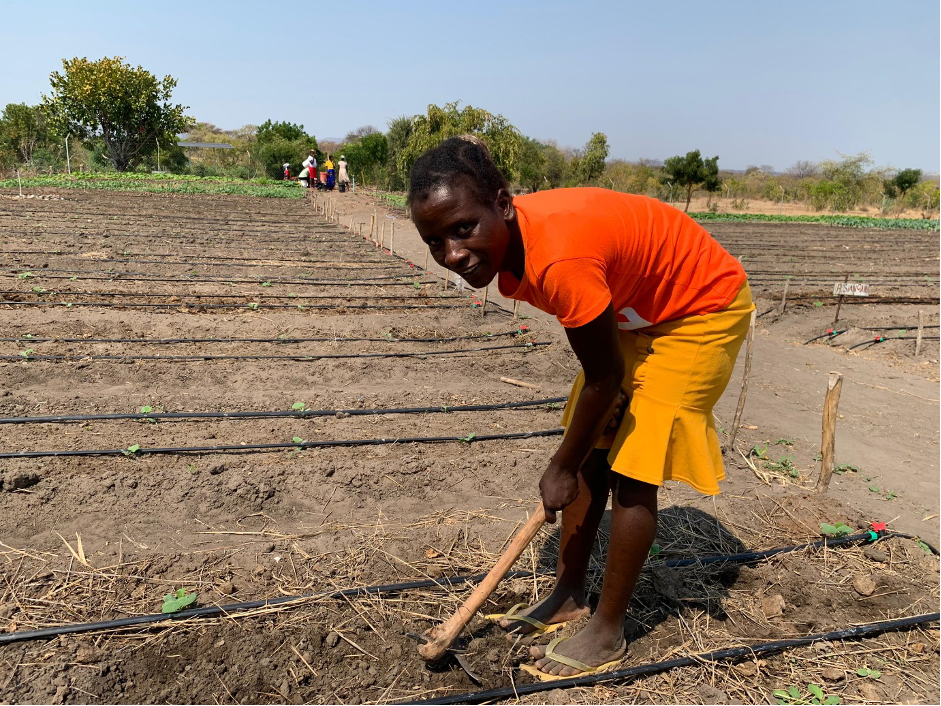
In addition to the cooling room, the garden boasts a greenhouse, a drip irrigation system, and a piped water supply, all of which enable year-round farming. The installation of an electric fence protects crops from wildlife, a frequent challenge in this region. These advancements are key in ensuring the sustainability and productivity of the garden, especially during droughts exacerbated by climate change.
“We now have enough water to carry out agricultural activities throughout the year,” said Kenmore, another participant in the program, highlighting the crucial role that water infrastructure plays in the garden’s success.
Fostering Women’s Empowerment and Community Cohesion
Women, who make up 85% of the garden members, play a critical role in driving the initiative forward. Their participation not only empowers them economically but also elevates their status within the community. The program fosters collaboration, as members share knowledge, resources, and responsibilities. Block farming practices, where small plots are collectively managed, have further strengthened community bonds and improved productivity.
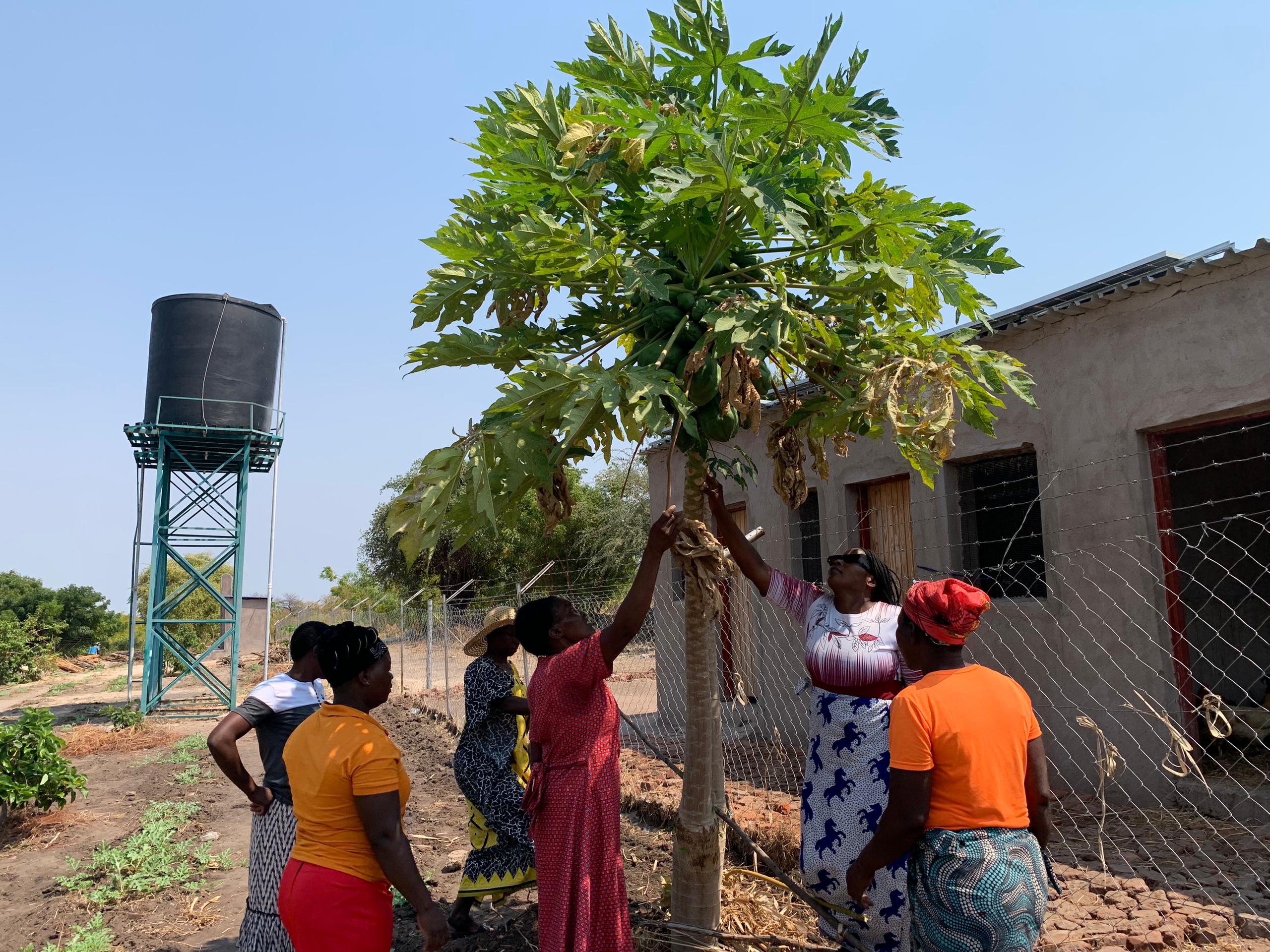
The garden members grow a variety of crops, including vegetables, citrus trees, and banana orchards. They have also diversified into rabbit keeping and poultry farming, which provide additional sources of income and nutrition. This diverse approach not only improves household food security but also generates much-needed income, enabling families to cover school fees, medical bills, and other essential needs.
“Ever since I became a part of this project, I have been able to send my children to school, and I am very thankful,” said Sthembeni, one of the garden members. Her story is just one example of how the initiative is lifting families out of poverty and providing opportunities for the next generation.
Building Resilience in the Face of El Niño
As Zimbabwe continues to feel the impact of the El Niño-induced drought, the role of nutrition gardens like Nabbole becomes even more critical. By promoting climate-smart agriculture, such as drip irrigation and composting, the program is equipping communities to withstand the harsh realities of climate change. During times of drought, when traditional rain-fed agriculture struggles to produce enough food, these gardens provide a reliable source of nutrition, reducing the risk of malnutrition and hunger, especially among children.
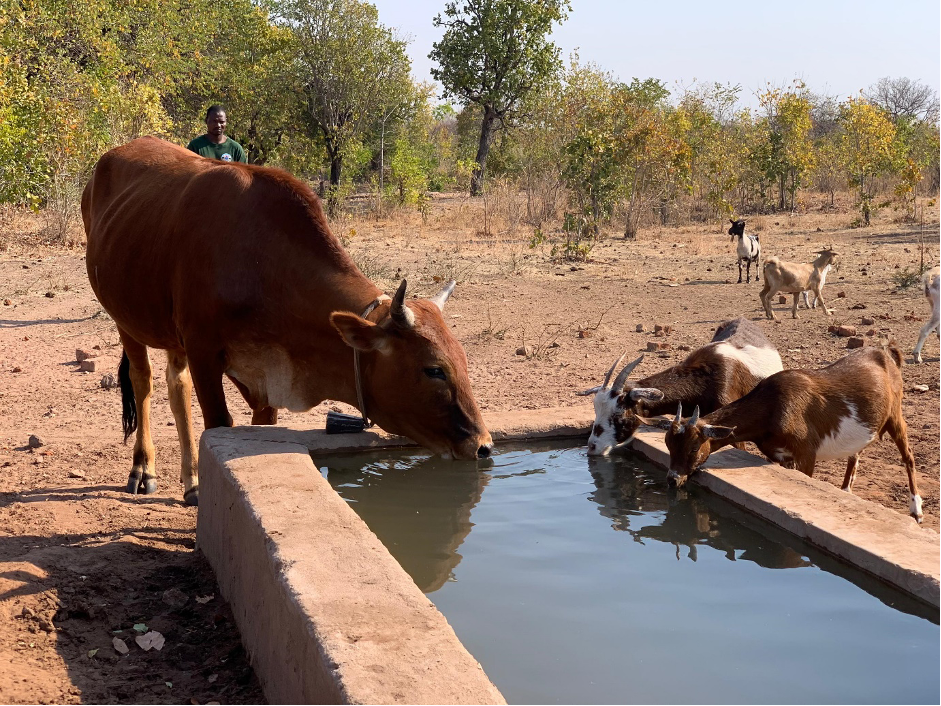
Chief Mola, a local leader in the district, expressed his gratitude for the initiative. “I am happy that my people are benefiting from this program. Cases of child hunger and malnutrition in my village have significantly decreased, as this has become a vital source of nutrition.”
The broader community has also benefited from the program’s infrastructure. Villagers now have access to clean water, and animals can drink from the water troughs constructed as part of the garden’s water system. This essential resource supports not only the health and well-being of both people and livestock but also fosters a greater sense of community collaboration.
Government Support and Long-Term Sustainability
The Government of Zimbabwe has played a pivotal role in the success of this program. The Agritex office has been instrumental in equipping garden members with the agricultural skills needed to make the gardens thrive, while the Ministry of Women’s Affairs has provided training in financial literacy and investment strategies through the Mukando model. This holistic support has not only enhanced agricultural productivity but has also fostered long-term economic empowerment within the community.
Trust Nyanzara, Regional Activity Coordinator for World Vision Zimbabwe, emphasized the importance of this collaboration: “World Vision Zimbabwe is complementing government efforts to alleviate food insecurity in rural communities, and we are seeing the positive results of this program, as some participants have become small business owners. We are grateful for the support we have received from the government in executing this initiative.”
A Pathway to a Better Future
The success of Nabbole Garden and other nutrition gardens in Kariba District underscores the importance of sustainable, climate-smart agriculture in the fight against food insecurity. As Zimbabwe and other parts of Southern Africa continue to face the effects of El Niño and climate change, initiatives like this are not just addressing immediate food needs—they are laying the foundation for long-term resilience, economic empowerment, and a brighter future for rural communities.
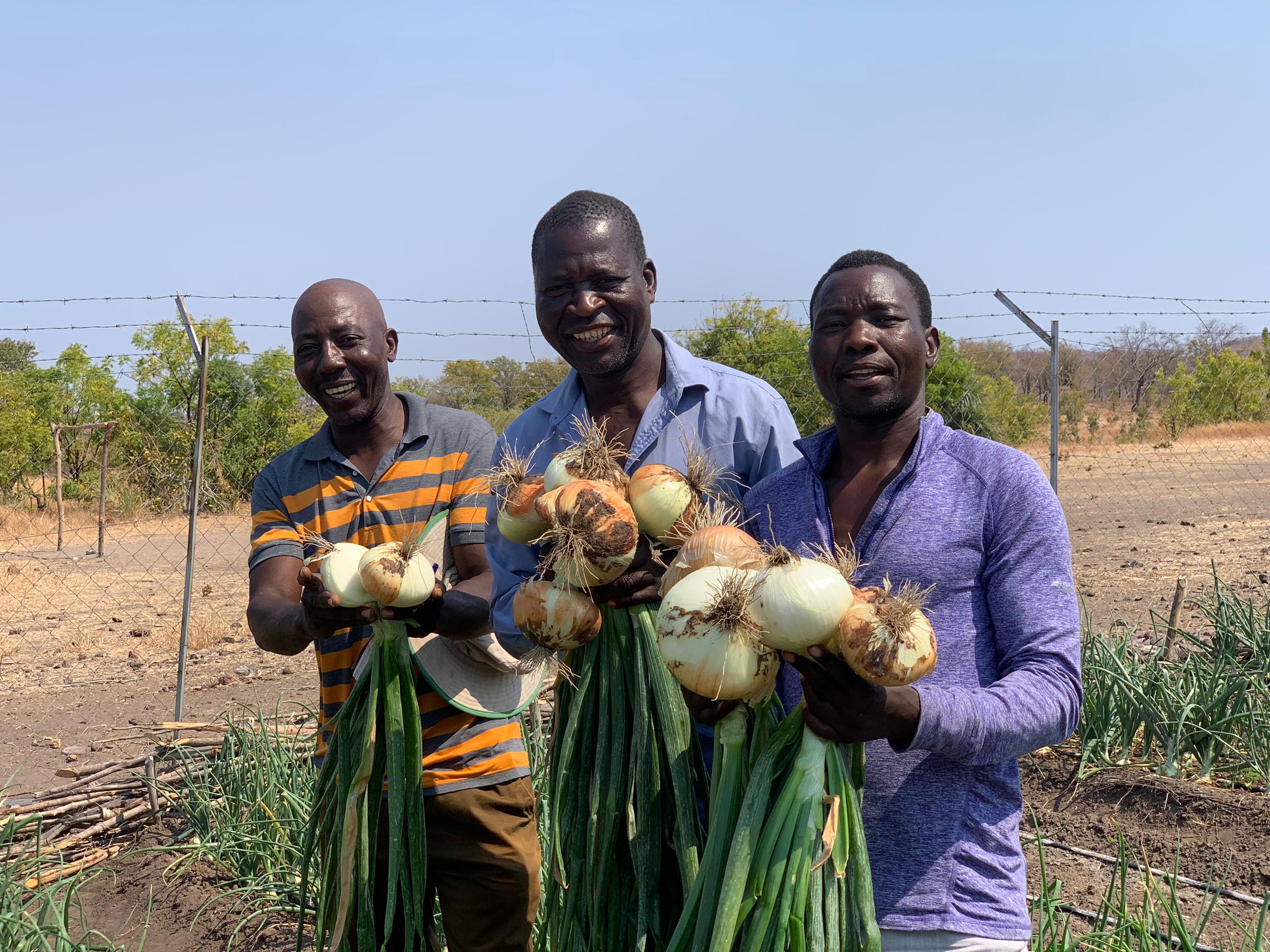
Through collaboration, innovation, and a shared commitment to sustainable development, these gardens are more than a source of food—they are a pathway to greater opportunity, dignity, and hope for generations to come.